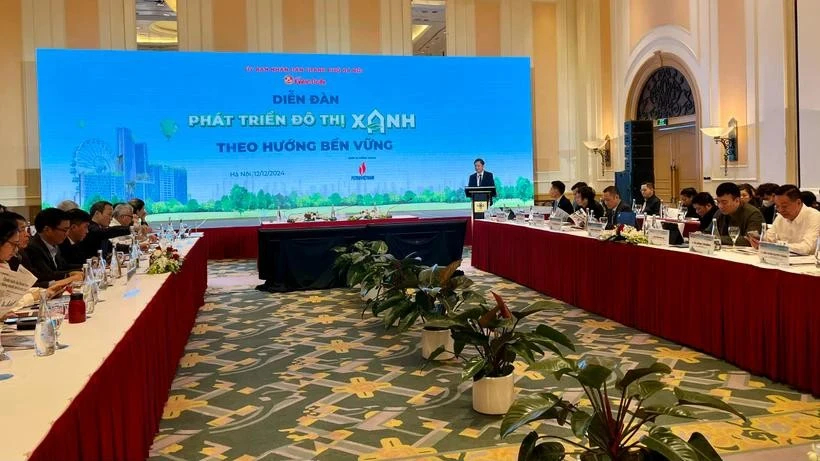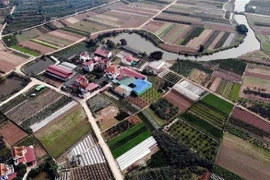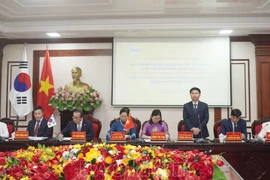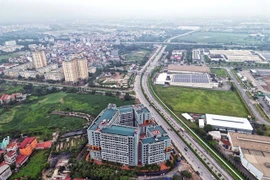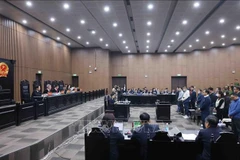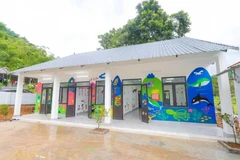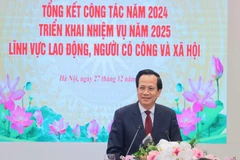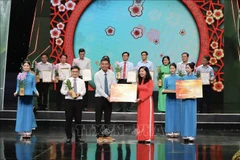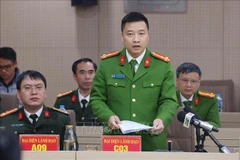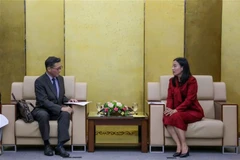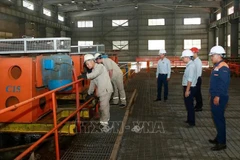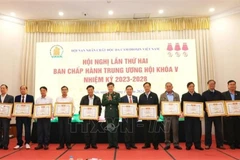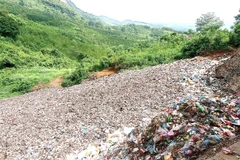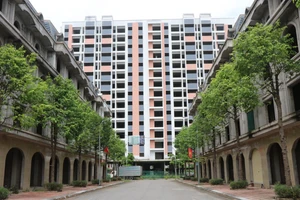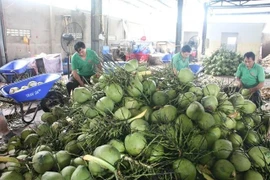Hanoi (VNA) - Green urban development is a substantial global trend, aiming to ease the impact of socio-economic development on the environment and move towards sustainable development.
At the Sustainable Green Urban Development Forum organised by the Economic and Urban Newspaper on December 12, experts and managers discussed challenges and policies to promote green urban areas in Vietnam.
Completing regulations on taxes and waste fees
International experience on waste management, traffic and decentralised urban models were shared at the forum, providing a new direction for the development of urban green spaces. The forum also emphasised the important role of data and community participation in developing and implementing effective green urban policies.
Dr. Nguyen Trung Thang, Deputy Director of the Institute of Strategy and Policy on Natural Resources and Environment (ISPONRE) under the Ministry of Natural Resources and Environment, emphasised the development of a circular economy for solid waste management, which is in alignment with green urban development.
He stressed that the urbanisation process is happening very quickly and reached 42.7% in 2023. Accordingly, the urban economy has contributed about 70% of the country's GDP. Meanwhile, the total amount of household solid waste generated across the country is about 67,880 tonnes a day, of which urban areas generate about 38,140 tonnes and rural areas generate about 29,740 tonnes.
The amount of urban solid waste generated in Hanoi is about 7,000 tonnes a day, 10,000 tonnes in Ho Chi Minh City, 700-800 tonnes in Hai Phong, and 1,100 tonnes in Da Nang. According to the Environmental Protection Report, the average rate of household solid waste collected and processed in urban areas is about 96.6%, of which the landfill rate is about 64%.
Evaluating urban solid waste management, Thang said that positive results have been achieved thanks to a more complete legal system. Specifically, many localities have implemented large-scale waste classification. Along with that, electricity generation technology has been applied, and treatment infrastructure has been improved. A plastic waste policy was also established, aiming to eliminate single-use plastic products after 2030.
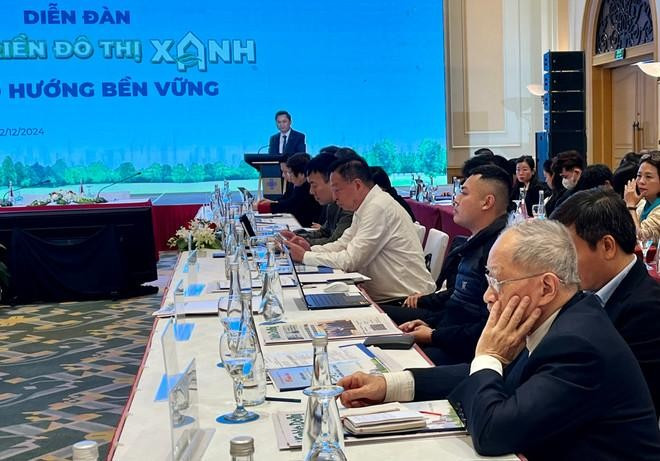
However, Thang frankly pointed out that there are still limitations such as the lack of specific instructions on recycling cost norms, and technical processes. Complicated licensing procedures, unreasonable regulations on incinerators, along with inconsistent classification, collection and treatment infrastructure affect the efficiency of waste classification. Furthermore, there is limited awareness of programmes that support recycling, lack of connection between localities, weak plastic waste management, and difficulties with investment.
To improve the situation, Thang proposed that it is necessary to perfect the circular economy policy, issue guiding circulars, and update electricity planning and provincial planning schemes. Localities need to proactively develop waste management projects, invest in synchronous infrastructure, and promote green finance. It is a must to improve regulations on taxes and fees on plastic waste, promote communications to raise public awareness and multiply effective waste classification models.
Reduce pressure on megacities
National Assembly Deputy Dr. Nguyen Duc Kien stated decentralised renewable energy centres could be used to support new urban areas. But from an economic perspective, construction costs in non-urban areas will be cheaper due to land prices and other costs. Thus, the trend of expanding resettlement and development areas to the outskirts of the urban core. This is the urban development model of ‘oil spills’ or decentralisation that many European countries have applied.
Dr. Nguyen Dinh Thao from the University of Transport and Communications shared ideas on the smart urban management model, by introducing a parking management system in a city of 13 million people in Russia. This system allows effective management of traffic, urban and transport needs. The interesting point is that the ratio between standard parking spaces (in closed lots) and substandard parking spaces (roadways, sidewalks) is 1:20. This shows great potential in optimising parking space.
The inevitable trend of the era
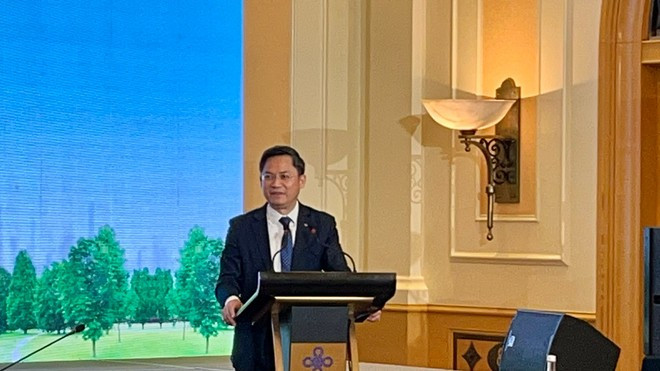
Attending the forum, Vice Chairman of the Hanoi People's Committee Ha Minh Hai discussed the positive change in awareness of environmental issues for municipal leaders. However, choosing a specific area to focus resources is very important. Even though the city's resources are growing, it would be counterproductive to deploy them all simultaneously.
According to the official, green urban development is not only an economic issue but also involves many other fields such as waste, traffic, energy and requires priority choices. Hanoi, as the "heart" of the country, needs to be "healthy" and "strong" in terms of the environment. Accordingly, the key areas of the green city include green agriculture and industry.
Regarding solutions, Hai said the city plans to raise environmental awareness at all levels, from leaders and managers to people and businesses. The aim is to accomplish this through training and communication, especially in terms of transparency in plans, funding, and contractors. This will allow people and experts to contribute opinions and monitor developments accordingly./.
